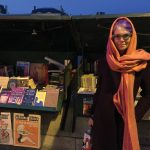PUBLISHED MARCH 2017
by Alexa Schlosser, Managing Editor,
IBPA Independent magazine --
We asked three bookselling experts to answer some of your questions regarding the relationship between indie author/small press and indie booksellers.

Ann Seaton
Ann Seaton Administrator, Northern California Independent Booksellers Association
Q: What information and/or characteristics appeal to you when considering shelving a book by an indie author or small press? What is the advice can you give a small press or indie author regarding getting the attention and support of an indie bookseller?
A: Indie bookstore are exactly that—independent—and have developed ways of doing business that works for them. There are exceptions to all of the thoughts listed here. And while a few indie books fly off the shelves from the get-go, most need assistance from the author to help move people into the stores. (Much of this information applies to “traditionally published” books, too.)
You’ve done your research, defined your market, your book conforms to the comparable format of that market, and the retail price is in the ballpark.
Most indie bookstores want to know about—and encourage—the authors and illustrators in their communities and support them. They also have to use their time—or their staff’s time—to review and manage any inventory that comes into the store. Time, money, and shelf space are in limited supply. Accept that booksellers know their market and will have a decent idea about what will sell in their store.
In order to support local authors and illustrators in their community, many bookstores offer consignment programs (books added to inventory and are paid for after they sell, unsold books are returned to the author. Books are offered to the store at a minimum 40 percent discount). The success of these books is often dependent on the author’s efforts—just because it has made it to the shelf doesn’t guarantee sales.
Advertising, whether in their newsletter, social media, or print newspaper costs a bookseller additional time and money. Think about ways you can help push customers into the bookstore for sales. This goes for events hosted by the store, too.
Amazon is usually seen by indie booksellers as an evil competitor due to its cutthroat, below-market retailing, among other things. What better way to devalue the cost of an item that we hold dear? Some (not all) booksellers will not stock books published through CreateSpace, Amazon’s self-publishing arm. Consider looking into Ingram’s Lightning Source or Baker & Taylor’s print-on-demand services, both of which offer e-publishing and will feed your title onto Amazon’s site as well. Many stores regularly do business with both Ingram and Baker & Taylor, making it easier to incorporate your book into their processes.
The bottom line is that bookstores need quality literature for their shelves. Call ahead, stop by with your finished book, and start the conversation.

Lynn Rosen
Lynn Rosen Independent Bookseller, Open Book Bookstore
Q: What information and or characteristics appeal to you when considering shelving a book by an indie author or small press?
A:
How it Looks. I keep going back to what Kwame Alexander said at PubU: “If you want your books to be considered, they need to look like the books from mainstream publishers. (He was speaking in context of awards, but this applies to store shelves as well). A large percentage of the indie books submitted to me for consideration still look like self-published books in the worst way: bad cover art, fonts that look like computer fonts, no gutters and small margins inside—things like that.
How You Sell It. I’d like to see all indie authors/publishers a) offer standardized terms, and b) understand how the process works before you approach me. Don’t guess the discount or ask me—make it 40 percent. Don’t give me a sad face and tell me how much money you spent to print it so you need a lower discount. Be prepared to invoice me and to handle this as a business transaction, not a favor you’re asking of me. And before you sell to me, come visit my store if you can and, if you can’t, at least check out my website and know something about my store. And don’t mention Amazon. At all.
Q: What is the advice can you give a small press or indie author regarding getting the attention and support of an indie bookseller?
A: Start by learning something about my store and visit if possible. I once had an author e-mail me saying that I should carry his book because he was local and lived five minutes from the store. I e-mailed back: “Have you visited us?” I never heard from him again. That’s not how that should have played out. Come on in—I’m friendly! Put a smile on your face and introduce yourself. (And bring your book(s)!) If you can give me a specific reason why your book works in my store in particular, that would be really great. And, again, please learn how the business works before you come in. It’s not my job to educate you on the process.
Q: How should small presses and indie authors contact you? E-mail? Snail mail? Phone? What is preferred method and what info should they be prepared to provide? Should they send book sample with one sheet for example? How far in advance of release should they contact you?
A: I prefer to be contacted initially by e-mail or snail mail. Please be politely persistent—I get a lot of queries. You can follow up with a phone call. Please be patient, too!
Here’s an example of a great query I just got: The author sent me an e-mail with info about her book and, when I didn’t respond, she called with a very non-accusatory “I know you’re busy but …” She e-mailed the info again with an additional link to a starred Kirkus review. That’s impressive, so if you have something like that, put it up front. But what I really liked was a link in her e-mail to a video posted on YouTube of her giving a talk at another store. I could tell right away if she was someone I wanted to present at our store. (She was). An additional hook with her was that her book takes place in our state, Pennsylvania. Start with your local stores; that’s the best way to do it.
I see a lot of one-sheets. I’m turned off by the ones that look homemade. Also, I’ve had a few situations where I get a one-sheet for an illustrated book. What I see on the sheet looks good, but the book is expensive, and I’m not willing to invest in a sight unseen. In these situations, I wish I would be directed to a website where I could see some interior spreads.
Three to six months in advance of release is good, the more the better.

Maryelizabeth Yturralde
Maryelizabeth Yturralde Event Coordinator, Mysterious Galaxy Bookstore
Q: What information and/or characteristics appeal to you when considering shelving a book by an indie author or small press?
A: In my role as event coordinator for Mysterious Galaxy, my primary consideration is whether we have a match for the book in our community—either our genre community, our geographically local community, or both. Then the trade standard factors are relevant. Is the book info available in a timely fashion? Is the discount a standard discount (including when all factors like shipping costs and any return penalties are taken into consideration)? Does the publisher or author have a marketing outreach plan to complement ours?
Q: What is the advice can you give a small press or indie author regarding getting the attention and support of an indie bookseller? What appeals to you?
A: I would advise small/indie presses and authors to do some research and know their audience. Are they contacting a general store or a specialist? Is book information available in advance of the publication/contact? And above all, recognition that Amazon is an online retailer and proprietary publisher, not a resource for other booksellers, and inclusion of links in either the cover letter or exclusively Amazon links from the author's/publisher's website create a negative impression in all non-Amazon retailers.
Q: How should small presses and indie authors contact you? E-mail? Snail mail? Phone? What is preferred method and what info should they be prepared to provide? Should they send book sample with one sheet for example? How far in advance of release should they contact you?
A: E-mail is always preferable because it has the option of providing the most complete and accurate content, including the information on authors, books, catalogs, terms, etc. And it helps alleviate any confusion that one might encounter over the telephone, especially with homonyms. The optimal e-mail will contain the information on the title(s)/author the contact believes may be of interest to Mysterious Galaxy, including the ISBN, release date, publisher, and brief synopsis. Information can be included in the body of the e-mail, provided in an attachment (one sheet is the perfect length), or via hyperlinking (not to Amazon). Mysterious Galaxy’s event calendar is generally booked a minimum of one month out, and, historically, our window of opportunity for successful in-store events is within four to six weeks of a title’s release, so publishers should have all of the book information available and released to the various ecommerce sites, including IndieBound (indiebound.org) approximately two months in advance of the publication date.
Alexa Schlosser is the managing editor of IBPA Independent magazine
. For the past five years, she has worked with various trade and not-for-profit organizations, developing content for both print and digital publications.